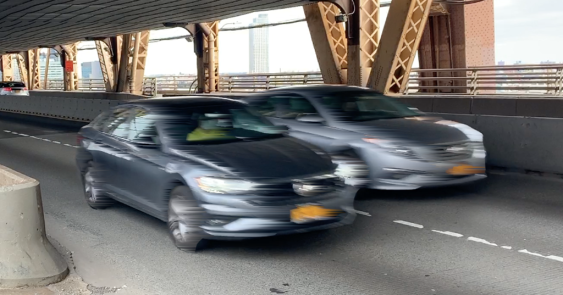Detroit has perhaps the worst transit crisis in the country on its hands right now. Almost a quarter of Detroit residents do not have access to an automobile, yet transit riders have to endure an unreliable system where the bus might never show, making it harder for economically vulnerable people to access jobs.
So transit advocates cheered when the Detroit region came together late last year to establish a regional transit authority, which would replace the previous regime of separate urban and suburban transit systems. The move assured greater efficiency, a tiny bit more money, and a federal grant to begin work on a small, light-rail starter line.
But now Detroit stands to lose 22 percent of its transit funding to wealthier suburbanites. In the introductory period before the regional transit system is fully organized, Detroit's embattled transit system has been dealt another painful blow. Yesterday the news broke that metro Detroit's regional planning agency, SEMCOG, would be changing the regional funding formula, transferring $7 million out of Detroit transit and into the suburban system.
DDOT -- the city agency that manages transit in the Motor City -- is already woefully underfunded, with its revenues coming out of the city's nearly bankrupt general fund. The state last month appointed an emergency fiscal manager for the city who will have nearly unlimited leeway to cut programs.
The Southeast Michigan Council of Governments had been entrusted as the financial agent for the agencies during the transition period while the RTA gets organized. SEMCOG officials told the Detroit Free Press yesterday that the decision to reduce Detroit's share of the regional transit funding from 65 percent to 51 percent was the result of direction from the Federal Transit Administration. A spokesman for Governor Rick Snyder said SEMCOG was under instructions from the FTA to "create a formula that’s more technically based and less arbitrary.”
SEMCOG Executive Director Paul Tait said the old system was outdated and inconsistent with federal law. The changes would only be in effect for a year and would only affect capital funds.
FTA officials, meanwhile, indicated to the Free Press that the local agencies have broad authority to establish funding guidelines. The agency indicated it would not intervene.
Meanwhile, Detroit Mayor Dave Bing told the Free Press “this is the worst thing I think they could do to us.”
Stephen Hendersen of the Detroit Free Press blasted SEMCOG yesterday:
We’ve got two dysfunctional bus systems. We don’t fund either adequately or rationally.
Until the RTA gets up to speed, we just need everyone to avoid committing further cardinal errors. Don’t do dumb stuff that will make transit — already one of our region’s most embarrassing drawbacks — any worse.
Apparently, the Southeast Michigan Council of Governments didn’t get the memo.
SEMCOG was subject to a civil rights lawsuit during the early part of the last decade, when advocates for the poor filed a complaint that the agency was "heavily biased against poorer and more densely populated communities like Detroit and its inner ring of suburbs."
Unfortunately, civil rights protections for transportation aren't very strong, and federal officials, evidenced by this case, are hesitant to intervene in local matters. In not doing so, they tacitly endorse SEMCOG's methods, and that means transit-dependent people in Detroit are out of luck once again.




